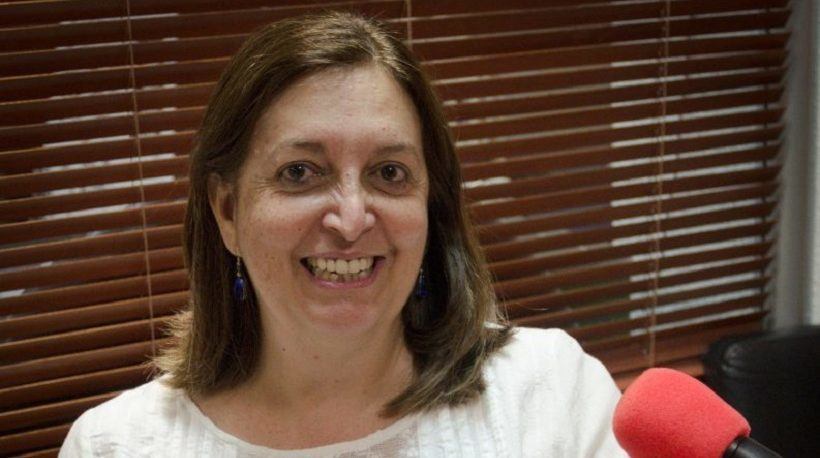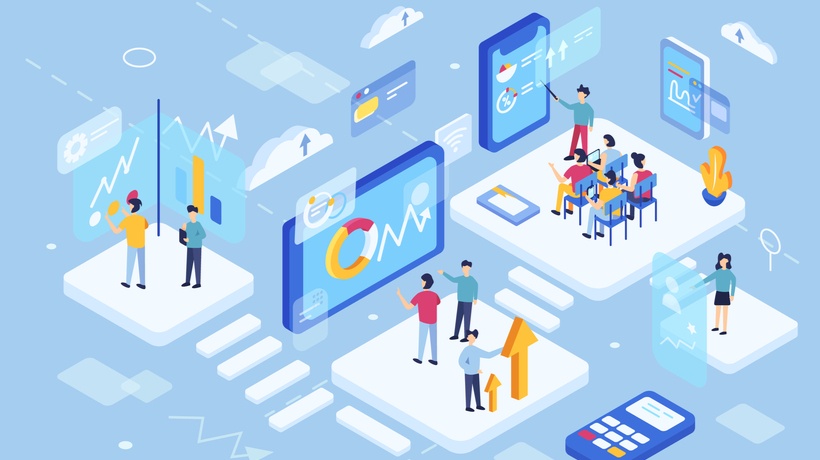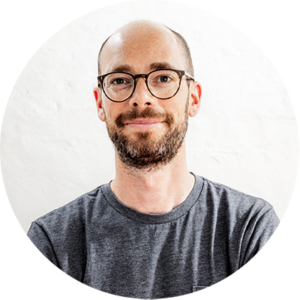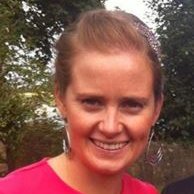Beatriz Valderrama And People Development
Here is what Beatriz Valderrama told us about people development and more:
"Coaching is a very powerful development methodology that requires a professional qualification. I am a psychologist coach. Not only it requires knowing a number of specific tools, but especially to develop personal qualities and skills necessary to have a positive impact on the lives of others.
I have been researching for the book; the coaching root is in Carl Rogers, who was the first to say that we are not treating patients, but clients, and that the relationship has to be horizontal. He is the inventor of the active listening and he has not only defined, but also investigated and found the qualities that professionals helping others should have. They are:
- Empathy.
Empathy, empathic understanding of the other, is understanding the other although they do not explain themselves enough; understanding their emotions, what they think, and what they feel. - Appreciation.
Unconditional positive assessment, or emotional empathy, which is the evaluation of the other, wanting them to be developed, and wanting the best for them. - Being a real person.
A consistent person, who is open to experience, to express what you think and what you feel; behaving with authenticity.
Those are the qualities that I think are very important. Therefore, to exercise them one does not need to have a degree, but empathy. This is the first thing. Coaching is a process of transformation. So to help others in the process of personal transformation, it is important that you have developed those qualities yourself, that way of thinking, and of course feeling that you are open to change, to improve, to develop positive beliefs about the ability of people to improve; we all have a potential. Those are the foundations of coaching and people development.
Being able to change your paradigms, your mental models, is also important, when those are not adapting to new realities. Being able to develop a flexible mind that can see the reality from different perspectives, so you can see it from the perspective of others, understand it too, and being able to help others to open their minds to these new perspectives. This will cause them to expands their capacity for action."
Panorama Of Coaching In Spain
"My experience -says Beatriz- is developing people, teams, and organizations, and a very powerful tool for that is the executive coaching; individual coaching. Another powerful tool is team coaching; there is another series of levers and tools for development.
I do not define myself as professional coach, but my career has been and is being focused on people development within organizations, using the methodology that has been called coaching. I am also a professor of psychological foundations of coaching in Universities and Business Schools.
About the outlook in Spain, I know that there are various coaching associations: AECOP, to which I belong, about executive coaching and organizational coaching; then I also am a Psychologist Expert Coaching (PsEC®) by the College of psychologists, where there is also a movement of development and training for the accreditation of psychologists coaches, and I am also MISCP, Accredited Member of the ISFCP, the International Society for Coaching Psychology.
I have the perspective that the market is not so much focused on personal coaching for the general public, but related to businesses. With companies, I can say that coaching services are part of the people development consulting.
We have gone through a huge crisis in Spain since late 2008, when budgets have shrunk and it the demand has been much less than before. On the other hand, many HR professionals or Training and Development professionals have left their companies and they have established themselves as coaches. Then there has also been a boom in coaching schools that have trained many coaches, so the market is not that easy.
However, we must also say that now we begin to see that companies reinvest in management development programs; for example, although slowly, in the situation of current political uncertainty."
How To Access The Market
"You must go to businesses. What I present are tools and methodologies in programs that we do, but basically what I do is ask them and listen to the customer, know where they are, how the evolution of the people in the company is, and what their needs are about people development:
- They may be managers or people responsible for teams with people who have agreed to a post by seniority, experience, knowledge, but have not been trained to be managers.
- Or companies that may be willing to change their management style, directive culture, or other values and skills. Especially, there is the culture of innovation: Today, if you do not transform digitally, you will not survive. That has much to do with the culture of innovation and people development.
- Another need may arise in the areas of knowledge management, sharing that knowledge of senior professionals. This can be done, for example, through mentoring programs.
Depending on the need that I sense, I work at designing a program that may require components of mentoring, training and skills development, executive coaching, team coaching, which is critical, and any evaluation tool, such as the feedback 360. Or, lately, I am also using the motivational profile APM questionnaire, an application of my Reasons Wheel model, which enables the person to dig deeper values and motives, which perhaps they are not aware of. That's what explains much of their strengths and areas for improvement. It is a very powerful tool to do a process of executive coaching."
Trajectory
"I finished psychology and, oddly enough, the first thing I can say I did was team coaching with body techniques, nothing more fashionable right now. I came into a body called CNINAT (National Center for initiating the child and adolescent to theater). The UCD was still in government. I went there and I found there were psychologists, half of the team were professional actors... known actors, like Margot Cottens or Asuncion Balaguer.
My boss, the psychologist Francisco Andrés, and I were designing intervention programs in schools in order to encourage and accompany children on the creation, assembly, and representation of a play. The actors did a first session with a representation of the work of Antonio Robles. At the end they told children, in a relaxed state, a very basic outline on which children were inspired to build a story.
In six other sessions there were specialists in body language. They worked body techniques, expression of emotions, they made mirror sculptures, a number of things to incorporate body and vocal resources.
Then the actors came again and helped the children to ride the story. Then came an artist who helped them create the costumes and the sets. At the end they made a representation. A participatory program of educational community was also made, in which there were parents and of course teachers.
The first thing I was asked to do was an evaluation workshop, to learn how to evaluate, something that I almost didn't know what it was. What I saw was that there were two almost conflicting groups: The actors on the one hand and the psychomotriciens on the other. They did not talk to each other, nor shared anything. The actors were saying 'Oh, you are very rare, what strange things you say and we do not know' and the others said 'Oh, we are not creative'.
So I ideated these weekly workshops with body techniques and the goal was to create that team. We were doing a still photo, we approached a trunk where we threw the negative, we highlighted the good part of others... Such techniques that we were applying with the children, I used them to create that team and to focus on the final goal. This I started calling it 'training'. Then, when the name 'team building' came, I called it 'team building', and then, when people started talking about coaching, I said that what I was doing was 'team coaching'.
The CNINAT closed in the early 80s, due to political change. Then I created an educational software company, which was called Alea (Logical Applications for Assisted Teaching). I did not know what I was doing, but basically it was what afterwards was called eLearning. But then there was still no internet or PCs; at least not in Spain.
We made programs for literacy development, and other logic programs, and other smoking cessation programs, as FumoStop (for people over 18, of course); all this designing games through different rooms of a castle, with keys that were the keys to progress. By pursuing the goals of the game, the child was learning concepts, for example adapted logic.
This company had to close in 1996 because there was no market. Then I reconverted into a trainer and entered a training company. After going through several consulting Human Resource development, I ended up creating my own in 2003, and I called it High Capacity.
As I was a psychologist, I remained as an evangelist: When I had a group, I was not delivering theory; what I was doing was impacting on the development of people and the development of the group, and if it was a team, the team development.
It was based on the techniques that really are the sources of coaching teams of authors like Chris Argyris, who was the first psychologist to team coaching executives and senior managers. Those are methodologies taught in coaching schools as the ladder of inference model, from the left column, the defensive routines, and double-loop learning.
There is a first level learning: I observe reality, I am the subject that observes reality, I have to accomplish a goal, and to put actions into practice to reach it. If I see that I have not succeeded, with the feedback I receive from the results, what I do is change my behavior to see if changing some things will help me. However, if after a few turns I see that changing what I do is not helping me get the expected results, I know that what I need to do is change more deeply, check my assumptions and mental models, my way of seeing things. That's a double-loop learning, at a second level, where the person becomes another person able to see things differently, which also extends their capability of action."
Trends
"I see now that the emphasis is on team coaching, and in any case, what I encourage people to do is get trained in the basic techniques, processes, and phenomena, which ultimately is a subject about people development. People are complex; we have motivations, concerns, expectations, aspirations, beliefs, and there are many things that are known in scientific psychology. All you can learn and develop by yourself will qualify you and will make you distinctive in the market.
Methods like NLP and emotional intelligence are all mixed up, and their success depends on schools: A touch of emotional intelligence, others with PNL... I've been lecturing about it for a few years and have already written another book in 2009: Development Of Mentoring And Coaching Skills; there I had also provided the bases from Rogers and Ellis.
In my book Psychological Foundations Of Coaching I researched more, I learned a lot, and I discovered that the origins are common. The origin of the PNL, the brief therapy, systemic therapy, strategic therapy, coaching, is the same; Gregory Bateson managed some funds for research on nonverbal communication.
Then he began to recruit young psychologists to record therapists; then, he analyzed what those verbal and nonverbal clues were that were effective in helping patients in change and transformation. Those who were scientists followed on that line and created the brief therapy. They were more marketing oriented and they created NLP.
Milton Erickson was a genius. In NLP, the vast majority is from Milton Erickson: All the display subjects, questions, meta-model, etc. Strategic brief therapy also is based in Milton Erickson.
Both NLP and scientific psychology are the anchors. Anchors come from behavioral psychology of learning. They have a slightly uglier name in psychology; it comes from the systematic desensitization of Wolpe, and Wolpe was also recorded. He was recorded doing anchors, it was really the root of behavioral therapy.
The origins are common. They have been breaking apart depending on the marketing and commercialization. If you are looking for the roots, if you want what they have in common, you realize that it actually is the same with other labels.
Emotional intelligence is also very powerful, because it has given us a common language. The model by Goleman, which is what I use, is the son of skills. Goleman was a student of McClelland, who is the one who invented the skills. The skills are nothing but a way to measure the intangible. What psychologists have always identified, personality traits, qualities, abilities, are translated into performance indicators and levels that allow us to reach an agreement between different raters to say whether that person is, for example, empathetic. If it turns out that you listen without prejudice, and you get a number of indicators, then we can say you have the competence of empathy.
Goleman does the same. The emotional intelligence competencies have the same name: Empathy, self-confidence... What happens is that instead of working them all, he set aside the analytical thinking, the organization... those are cognitive skills, and he develops the emotional, which gives us a standard, a benchmark to manage, identify, evaluate, develop, recognize, and reward. We can teach someone, a manager, to develop empathy, or the development of collaborators, without subjectivism. What level of that behavior and of language and thought he reaches, are the values that tell me that this person is competent. It has been used in emotional intelligence for the development of people."
Future Perspective
"My profession is exciting because it is vocational. Many people study psychology because they want to help others to mature emotionally. I request that there are possibilities to work with organizations to develop my profession in people, teams, communities, etc.
To those who access the profession of coaching, I request from them to get trained, I ask them to remove prejudices that come from the school that trained them. When they are told on the first day 'This is not psychology', they should ask 'What is that then, celestial mechanics?'. It is not clinical psychology or therapy and you don't have to get deep into topics for those who are not trained, but to my way of thinking, in some schools they are going too far, perhaps unknowingly, perhaps for interest, but they show that this is different and they say this is not psychology.
The models they are teaching and showing are done by psychologists. Perhaps they are interested to say that the whole thing was invented at their schools, but this is really neither honest nor helping coaches to get trained to be excellent in their profession. Because it takes the bases, the foundation, out from them; it prevents them from approaching to learn from psychology, because it creates a prejudice, and they say it like this: 'Psychology looks to the past', and this is wrong. Maybe that is psychoanalysis, but psychoanalysis is not psychology.
Or they say: 'Psychology focuses on the negative'. But that is not so. Psychology is focused on health; on health promotion. An effective psychologist and an effective therapy are based on health and on promoting self-esteem and self-confidence of the person, and that cannot be made from the negative.
In my book Psychological Foundations Of Coaching I have not found a single model that does not come from psychology. They say it comes from the management, but the management of whom? If you tell me Drucker, I say: Okay, it was not a psychologist. But if you say Warren Bennis, he himself says that he was a disciple of the psychologist and MIT professor McGregor, who was for him the father he never had. McGregor developed the new paradigm of the motivation of people at work. Conflict management, active listening, assertiveness... all these are models and tools developed by psychologists."









